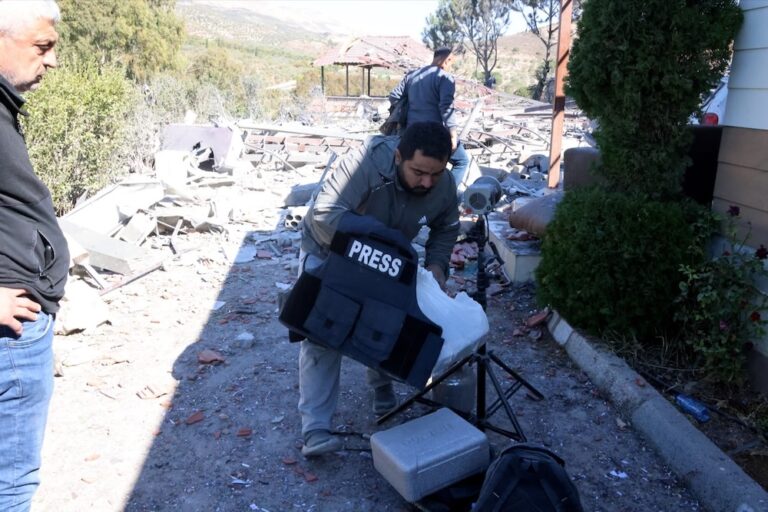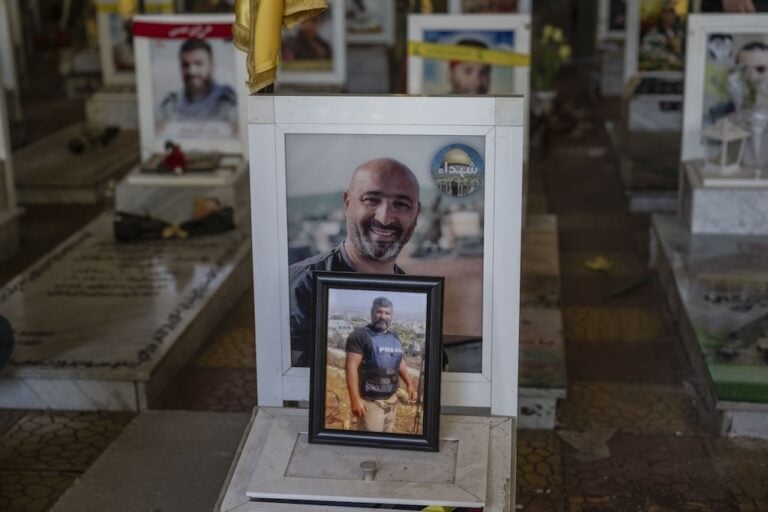Two recent reports highlight escalating threats and impunity of perpetrators targeting journalists in Lebanon, underscoring the urgent need for protections and the vital role of independent journalism.
Please find below excerpts from two reports published by Maharat Foundation on 1 November 2024.
A WAR WITHOUT RED LINES: THREATS AND RISKS FACING JOURNALISTS IN LEBANON
With the outbreak of the war on Lebanon on October 8, 2023, Lebanese journalists found themselves facing unprecedented challenges, exacerbated by direct targeting and increasing violations by the Israeli army, which did not hesitate to bomb their locations and places of residence despite clear signs identifying them as journalists.
Journalists have become direct targets of bombing and lethal attacks by the Israeli army, which employs excessive force and internationally banned weapons. At the outset of the war, the army clearly stated that it could not guarantee the safety of journalists, posing a direct threat to the lives of both civilians and journalists in conflict zones. This reflects a blatant disregard for international standards that protect their rights.

This war has not only stripped journalists of their security but has also hindered their ability to access information and convey facts to the local and international audiences.
This report aims to highlight the increasing violations faced by journalists and the impact of these assaults on their freedom and their ability to practice their profession under difficult and complex circumstances. In addition to external assaults, journalists also face internal pressures and harassment that threaten press freedom, placing them in a critical position between their professional responsibilities and personal danger
Read the full report A WAR WITHOUT RED LINES: THREATS AND RISKS FACING JOURNALISTS IN LEBANON
CHALLENGES OF MEDIA COVERAGE OF ISRAEL’S WAR ON LEBANON
In this report, Maharat examines the dynamics of the media war taking place in Lebanon surrounding Israel’s military offensive against Hezbollah. It underscores the importance each conflicting party assigns to media as a tool for psychological warfare – a phenomenon observed in conflicts worldwide, where each side seeks to control propaganda and impose its narrative to sway public opinion.
The report explores the difficulties journalists encounter when covering wars and crises, where reporting under such conditions becomes significantly challenging. Journalists find themselves in a genuine dilemma: How can they circumvent the media censorship imposed by the military on reports about the progress of battles? Should they convey what they know and observe, or comply with the warring parties’ demands, potentially portraying a reality that contradicts the truth or conflicts with national interests? War poses significant challenges to journalists, the foremost of which include maintaining their freedom, selecting news stories, framing their approach, and presenting the facts as they observe them rather than as the military portrays them.
Lebanese media coverage has revealed deep internal divisions related to the coverage of the ongoing war. Political factions opposed to Hezbollah’s policies have not adopted its narrative, intensifying tensions among Lebanese groups and escalating hate speech and division, leading to accusations of treason and even death threats.
Read the full report: CHALLENGES OF MEDIA COVERAGE OF ISRAEL’S WAR ON LEBANON



